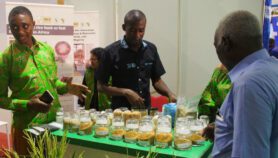By: M. Sreelata
Send to a friend
The details you provide on this page will not be used to send unsolicited email, and will not be sold to a 3rd party. See privacy policy.
[NEW DELHI] Indian pharmaceutical company Aurobindo Pharma Limited is expected to become the first major generic drug maker to make use of a patent pool set up to find a way for expensive drugs to reach the poor.
The Medicines Patent Pool (MPP) was set up in 2010 with support from international drug purchase facility UNITAID — which procures cheap drugs for HIV, malaria and tuberculosis — as the first patent pool for HIV medicines. Through the pool, patent-holding companies volunteer to forgo their patent rights in selected developing countries, enabling local companies to make medicines generically at licence fees agreed between themselves and the pool.
Aurobindo Pharma signed an agreement with the MPP last month (20 September) for the manufacture of several antiretroviral medicines licensed to the pool by US pharmaceutical company Gilead Sciences in July.
According to the MPP, the company has also chosen to take advantage of a key provision negotiated by the pool that should enable it to sell the antiretroviral drug tenofovir to other companies without requiring them to pay royalties directly to Gilead Sciences.
"We are excited about both the public health and business opportunities provided by the [MPP] licences," said Aurobindo chairman PV Ramaprasad Reddy in a statement. "Aurobindo looks forward to increasing its manufacture of HIV-related products and expanding its work to cover promising new treatments."
But not everyone is happy about the move. Critics of the MPP are concerned that the new licences will still leave many behind as they are restricted geographically to poorer countries.
"We remain deeply concerned about the licences that the MPP has entered into with Gilead Sciences," said Sarah Zaidi, executive director of the International Treatment Preparedness Coalition, a global advocacy group based in Thailand. "We cannot support licences that still leave behind over half a million people living with HIV."
MPP spokesperson Kaitlin Mara told SciDev.Net: "The fact that some upper or middle income countries are not in the geographical scope of the licences is a shortcoming we acknowledge.
"But the licences still benefit 100 per cent of people living in lower income countries. The pool will continue to work with Gilead and others to improve [the situation]."
A smaller drug manufacturer, MedChem, signed licensing contracts with the MPP before Aurobindo, but Mara said it is likely that the latter will be the first to get medicines to market. "Aurobindo has a track record of producing ARVs, so it is likely that they will be the first," she said.













